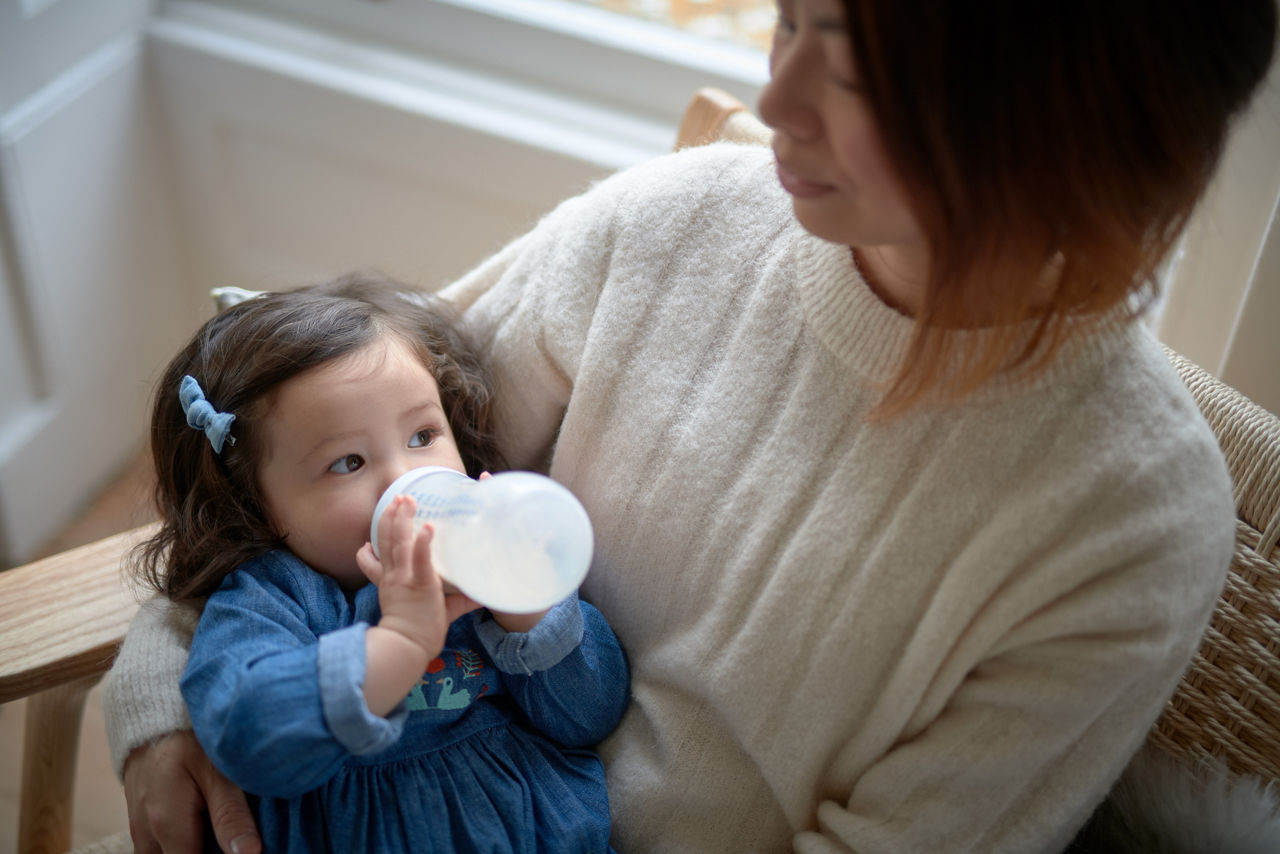If a parent decides to bottlefeed, it is important they are correctly informed on how to prepare an infant’s bottle. Powdered milks are not sterile, therefore failure to follow instructions may cause an infant to become ill. The following instructions should be followed carefully when making up an infants bottlefeed. These instructions should be followed for standard feeds.
Please note that some specialised feeds require slightly different guidelines to the ones below (for standard feeds) therefore it is very important to always follow the instructions on the side of the pack.
- Wash hands, clean work surfaces, and sterilise all utensils according to manufacturer’s instructions.
- Empty kettle and refill with freshly run tap water and boil (or other suitable covered container). When boiled, leave the water to cool in the kettle (or other suitable covered container) for 30 minutes but no longer. This will ensure that the water is not too hot but is also no less than 70°C. Do not use artificially softened or repeatedly boiled water.
- Measure the required amount of water into a sterilised bottle. Water that is 70°C is still hot enough to scald this should be handled with care. (Always refer to feeding guide on the side of pack)
- Using the scoop provided, level off the powder with the built-in leveller. Alternatively, level with a clean, dry knife. Do not press/heap the powder.
- Add one scoop to every 30ml (1 fl oz) of water using the clean scoop provided. Add the correct number of scoops to the water. Adding too many or too few scoops may be harmful.
- Re-assemble the bottle tightly and carefully according to manufacturer’s instructions. Shake well (for 10 seconds) to dissolve the powder.
- Cool the feed quickly to feeding temperature by holding the bottle under cold running tap water, making sure that the cold water does not reach above the neck of the bottle during cooling. Check temperature of the feed; it should feel lukewarm, not hot. Feed immediately.
For hygiene reasons, do not store made-up feeds. Make up each feed as required and always discard unfinished feeds after 2 hours.
- Do not heat in a microwave. hot spots may occur and cause scalding.
- Do not add cereal, rusks or biscuits to bottles.
- Infants should be supervised at all times during feeding.
Using bottled water for making up feeds
If tap water is not suitable for drinking, a water softener system is in use, or if on holiday abroad, use bottled water to prepare an infant’s bottlefeed following the the instructions above.
Note: Bottled water must be boiled before using it to prepare feeds. Only use still bottled water (not sparkling or fizzy water). Choose a bottled water that has a sodium content of less than 20mg per litre (Always check the label).
- Food Safety Authority of Ireland (2012). Guidance note 22: Information relevant to the development of guidance material for the safe feeding of reconstituted powdered infant formula (Revision 2). (https://www.lenus.ie/hse/bitstream/10147/227213/1/GN%2022%20REV%202%20FINAL.pdf)
- Health Services Executive and Safefood (2012). How to prepare your baby’s bottle. (https://www.safefood.eu/SafeFood/media/SafeFoodLibrary/Documents/Publications/Consumer/Baby-Bottle-Feed-2012.pdf)
You may also be interested in
Nutricia offers access to a wide range of support services and resources including:
- • Our free Sampling Service to order product samples and have them sent to your patients' homes.
- • A range of CPD accredited e-learning programmes.
- • Order free paper copies of our support tools for yourself or to use with your patients.
- • Sign up to receiving marketing communications and be the first to know about our free educational events & webinars, the latest scientific research and product updates.
Help us provide information most relevant to you
Please ensure your role and areas of interest are up to date.

